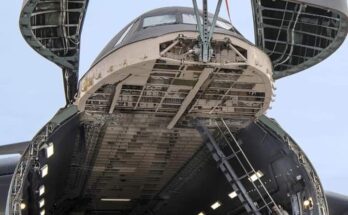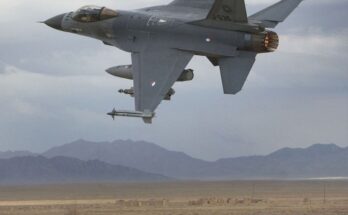
The F-35C is the carrier-based variant, and its landing gear is beefed up compared to the F-35A and F-35B. Carrier landings involve what’s essentially a controlled crash: the jet has to slam down onto the deck at a precise spot so the arrestor hook can catch one of the arresting wires. That’s much harsher than a smooth rollout on a long runway.
Some key differences in the F-35C’s landing gear compared to the F-35A:
- Stronger, longer main landing gear to absorb the higher sink rate (harder impacts).
- Dual-wheel nose gear (instead of single-wheel like on the F-35A) for better load distribution on catapult launches.
- Reinforced structure in the gear wells and fuselage to handle those stresses.
So your point is spot-on — the F-35C’s landing gear is designed to take repeated carrier launches and recoveries, while the F-35A’s is optimized for conventional land-based runways.
Would you like me to also break down the differences with the F-35B (the STOVL variant)? That one’s pretty unique too.

